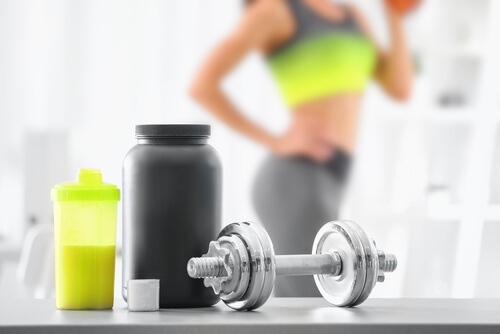Sports nutrition degrees
The M.S. in Nutrition – Sport Nutrition online program consists of 10 courses (30 credit hours), which includes 9 hours of core coursework, 18 hours of concentration courses in nutrition and kinesiology, and 3 hours of electives https://low-deposit-casino.com/. There is no clinical requirement.
CSP Global’s PhD or EdD in Kinesiology with a concentration in Sports Nutrition gives you the tools and knowledge needed to succeed in a dynamic and growing field. Whether you aim to conduct groundbreaking research, work with elite athletes, or lead wellness initiatives, this program can help you achieve your goals. With a flexible online format, experienced faculty, and a curriculum designed to meet the needs of today’s sports nutrition professionals, CSP Global is the ideal choice for your advanced education.
In addition to coursework, students will complete a dissertation or research project that allows them to explore a topic of interest in-depth, contributing original research to the field of sports nutrition.
Degree in sports nutrition
Students that are searching for degree programs in sports nutrition are encouraged to select one that is accredited by a nationally recognized accrediting agency such as the Accreditation Council for Education in Nutrition and Dietetics (ACEND). In addition, the program should prepare students to sit for the Board Certified Specialist in Sports Dietetics (CSSD).
The first step to becoming a sports dietitian or sports nutritionist is to earn a bachelor’s degree in nutrition. To qualify, the program you choose must be accredited by the Accreditation Council for Education in Nutrition and Dietetics (ACEND).
At a public research university like K-State, you’ll have direct access to research opportunities from the start. K-State undergraduates have studied sustainable energy, cancer cells, musical lyrics and many other topics alongside nationally renowned faculty at K-State’s 90-plus research centers.
Communication is key when working directly with clients. It’s imperative that your clients understand how you explain a nutrition plan and educate and counsel clients to establish the right dietary habits. Other important skills include:
While you are in school, you should take every opportunity to learn about the field of dietetics and sports nutrition. This may mean volunteering your time with a school sports team or helping in an athletic department. You can also join organizations specific to the field as a student member to gain more experience. Look into both SCAN (Sports, Cardiovascular, and Wellness Nutrition dietetic practice group of the Academy of Nutrition and Dietetics) and CPSDA (Collegiate and Professional Sports Dietitians Association).
Sports nutrition centers
Just answer each question, and in less than a minute, you’ll have a sports nutrition plan that’s 100 percent customized for your goals, including the amount of calories, protein, carbs, and fat you should eat.
We also like to put in some protein, because during your activity you’ve broken down your muscle tissues. So that protein gives us building blocks to build that muscle tissue that you just broke down.
Eat 0.65 to 1 gram of protein for every pound you weigh (1.4 to 2.2 grams per kilogram). Some athletes may benefit from slightly more protein, but this is a good target for most. This recommendation is based on research that shows this is the upper range needed to maximize muscle growth and training adaptations for most people.7,8
2. Logue DM, Madigan SM, Melin A, Delahunt E, Heinen M, Donnell SJM, et al. Low Energy Availability in Athletes 2020: An Updated Narrative Review of Prevalence, Risk, Within-Day Energy Balance, Knowledge, and Impact on Sports Performance. Nutrients. 2020 Mar 20;12(3).
A sports nutrition dietitian plays a key role in athletic training. Our registered dietitian nutritionists provide personalized guidance on food, supplements, and daily habits. Your dietitian is not only an expert in sports nutrition and behavioral health but an accountability partner with an in-depth understanding of your unique path.
(Here’s the math: 150 pounds of body weight x 2-3 grams of carbs = 300-450 g total carbs. Then 300 g or 450 g of total carbs / 25 g carbs per cupped-hand serving = 12-18 cupped handfuls of carbs per day.)


